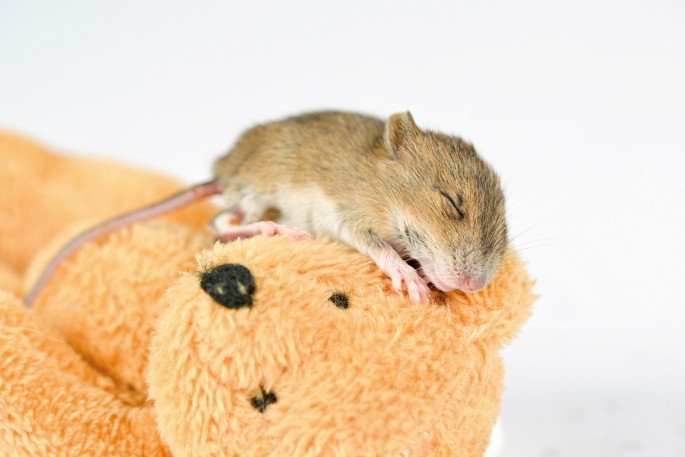
- Select a language for the TTS:
- UK English Female
- UK English Male
- US English Female
- US English Male
- Australian Female
- Australian Male
- Language selected: (auto detect) - EN
Play all audios:
Access through your institution Buy or subscribe To dissect the effects of increased sleep need from time spent awake, the authors used sleep-deprived mice and ‘sleepy’ mice, which carry a
mutation in the gene encoding salt-inducible kinase 3 (SIK3), an AMP-activated protein kinase (AMPK) family member. These _Sik3__Slp_/+ mice spend less time awake than do wild-type mice,
reflecting a consistently high sleep need. The authors analysed proteomic and phosphoproteomic data from whole-brain lysates and used these to make three group comparisons: _Sik3__Slp_/+
mice versus wild-type mice; mice that had been sleep-deprived for 6 hours versus mice that slept for 6 hours; and sleep-deprived mice versus mice that were sleep-deprived for 6 hours and
then had 3 hours of recovery sleep. Whereas the levels of most proteins did not seem to be altered with sleep need, there were considerable changes in the levels of different phosphoproteins
between the _Sik3__Slp_/+ mice and wild-type mice, and between the sleep-deprived and slept or recovery-slept mice. Changes in the levels of 329 phosphopeptides were common to all three
comparisons, suggesting that increased sleep need may be accompanied by changes in phosphorylation in the brain. This is a preview of subscription content, access via your institution ACCESS
OPTIONS Access through your institution Access Nature and 54 other Nature Portfolio journals Get Nature+, our best-value online-access subscription $29.99 / 30 days cancel any time Learn
more Subscribe to this journal Receive 12 print issues and online access $189.00 per year only $15.75 per issue Learn more Buy this article * Purchase on SpringerLink * Instant access to
full article PDF Buy now Prices may be subject to local taxes which are calculated during checkout ADDITIONAL ACCESS OPTIONS: * Log in * Learn about institutional subscriptions * Read our
FAQs * Contact customer support REFERENCES ORIGINAL ARTICLE * Wang, Z. et al. Quantitative phosphoproteomic analysis of the molecular substrates of sleep. _Nature_
https://doi.org/10.1038/s41586-018-0218-8 (2018) Article PubMed PubMed Central Google Scholar Download references AUTHOR INFORMATION AUTHORS AND AFFILIATIONS * Nature Reviews
Neuroscience http://www.nature.com/nrn/ Natasha Bray Authors * Natasha Bray View author publications You can also search for this author inPubMed Google Scholar CORRESPONDING AUTHOR
Correspondence to Natasha Bray. RIGHTS AND PERMISSIONS Reprints and permissions ABOUT THIS ARTICLE CITE THIS ARTICLE Bray, N. Sleep it off. _Nat Rev Neurosci_ 19, 444 (2018).
https://doi.org/10.1038/s41583-018-0037-9 Download citation * Published: 26 June 2018 * Issue Date: August 2018 * DOI: https://doi.org/10.1038/s41583-018-0037-9 SHARE THIS ARTICLE Anyone you
share the following link with will be able to read this content: Get shareable link Sorry, a shareable link is not currently available for this article. Copy to clipboard Provided by the
Springer Nature SharedIt content-sharing initiative






